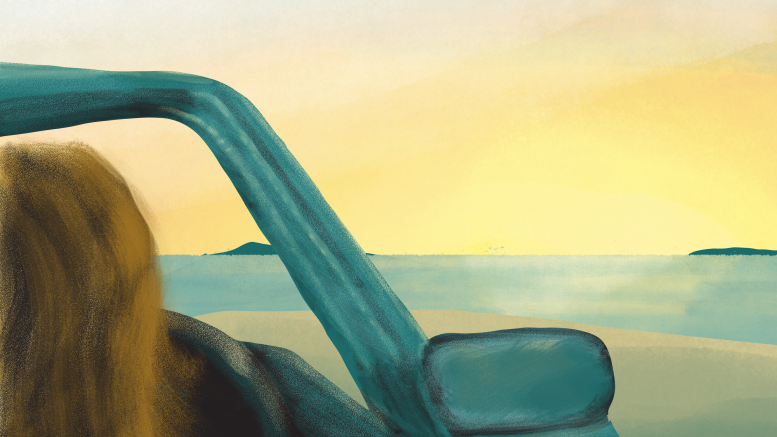I was raised on a quiet estate in Nigeria’s capital city, Abuja.
On Sunday evenings, my mum, little brother and I would drive to Jabi Lake Park — 10 minutes away from our home — to watch the sunset.
We would thank the universe for its beauty and appreciate our ancestors while listening to Aṣa’s 2007 album on repeat. This was my fondest childhood memory.
Jabi Lake Park on Sunday evenings was not the most ideal scenery. It was the aftermath of a typical Saturday Owambe — littered with plastic bottles, empty food containers and wrappers.
Like the bulk of the infrastructure in Nigeria, the park was mismanaged and lacked security. The lake itself was an eyesore and covered entirely with weeds.
The sunsets weren’t necessarily spectacular either. They were rather dull, as Abuja tends to be cloudy most days.
Yet, with each passing week, we chose to watch the sunset at that very spot.
So, why did we keep going back to Jabi Lake Park? In all honesty, the near proximity to my house was an obvious influencing factor. However, it was more about what the sunset signified to us — warmth, comfort and completeness.
Although life was transient and ever-changing, there was the sureness of this powerful entity coming back up.
To this day, I find beauty and solace in each sunset.
I spent a considerable chunk of my formative years at a boarding school in Nigeria.
During this period, when I was not counting down the days until I got to go home, I found a new source of beauty in print newspapers.
Devoid of telephones or electronics at school, it often felt like my only connection to the rest of society was the daily newspaper delivered to the school’s library.
My morning routine after breakfast involved rushing to grab a copy of the Punch or Vanguard newspaper as soon as the librarian opened the doors.
The thing was, most days the stories were the same — our failed government, our failed infrastructure and the unbearable reality that many Nigerians were faced with.
I mean, what did one expect in the media of the supposedly failed Giant of Africa?
But some days, I would stumble upon stories about the remarkable resilience of our people — thriving despite our government, rather than because of it.
I would read and re-read rich and vibrant stories highlighting the successes of Nigerians in the fashion industry, the global music scene and the literary world.
I found beauty and comfort in these stories.
It never occurred to me that six years later, I would be part of a publication sharing my own words and bringing stories to life.
It’s fascinating to explore how things like stories and sunsets, in their own unique way, play a defining role in one’s identity and outlook on life.
What if I had stopped flipping through the newspaper after seeing the first negative headline, and developed a great disdain for print newspapers instead?
Or what if I had only focused on the downsides of Jabi Lake Park?
I would have failed to notice how beautiful the sunsets were.
In a world filled with so much ugliness, finding the beauty in everything has become my own version of resistance.
Today, I find beauty in quite literally everything.
I find beauty within myself and those around me. I find beauty in all forms of love, both past and present. I find beauty in every moment and every memory.
From brainstorming ideas for the research & technology section at the Manitoban’s basement office in Helen Glass, to mundane moments like my bus rides across the city to get to campus, everything in my immediate experience affirms my deep belief that, as far- fetched as it may seem, we are surrounded by so much beauty and inspiration.
So, this is me urging a faceless audience to find beauty in everything, even if it’s the subtle transition of day to night.
There is so much life to experience, so much beauty all around us and so many sunsets to see.


